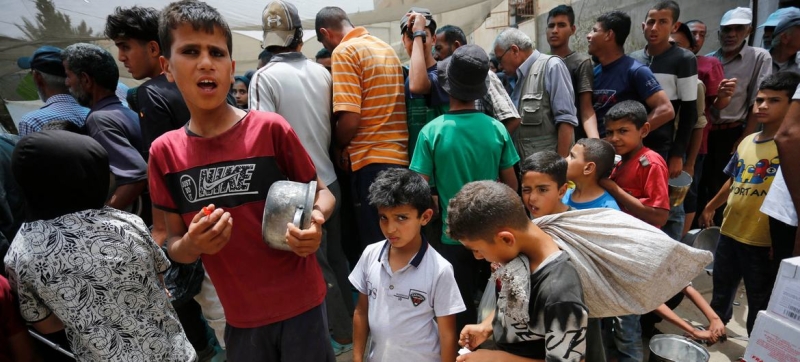
Children waiting for food in Gaza. War in Gaza: 10 thousand patients need medical evacuation Peace and Security
Pregnant women in Gaza are asking for premature caesarean sections out of desperation and fear that they will not be able to get help when it comes time to give birth. This was reported on Friday from the World Health Organization (WHO).
Noting “enormous” problems accessing the enclave’s remaining hospitals, WHO spokesman Rick Pieperkorn said the enclave’s medics, obstetricians and doctors were treating many more low-birth-weight babies than before the war.
Hygiene and sanitation
“The population is almost completely deprived of the opportunity to provide themselves with food, housing, access to health services and has no source of livelihood , said Maryse Guimond, UN Women Special Representative for the Occupied Palestinian Territories. “Women asked me when they could return home. Every move frightens them and brings new losses.”
Read also:
The UN again warns of dire conditions in Gaza: scorching heat, severe food shortages and fierce fighting
Speaking to reporters in Geneva via video link, Guimond noted that one school, converted into a shelter for displaced people, has only 25 toilets for the 14,000 people living inside the complex and the 59,000 others sheltering outside nearby.
Women’s Despair
“We are seeing a lot of premature and low birth weight babies, which often happens during conflicts and wars… but we’ve even had cases of women, when they had access to a hospital, asking for an early caesarean section to make sure they gave birth safely because they were afraid that will not be able to get to the hospital later due to the unstable situation,” said Rick Pieperkorn from WHO.
He also highlighted the extremely high number of cases of injuries, amputations and chronic diseases these patients must be urgently evacuated for treatment.
Medical evacuation
Since October 7, following the Hamas attacks on Israel and the outbreak of the Gaza war, approximately 4,800 patients have been medically evacuated from the enclave, mostly to Egypt and other countries in the region.
But, according to Pieperkorn, at least another 10 thousand patients need specialized treatment that they cannot get in the sector.
Before Between 50 and 100 medical evacuations were regularly carried out from Gaza to hospitals in the West Bank, a WHO official explained, calling for the Rafah border crossing in the enclave’s south to be reopened or for nearby Kerem Shalom to be used instead.
Humanitarian pauses
WHO also denied claims by the Israel Defense Forces (IDF) that the recently announced pauses in hostilities have led to an improvement in the humanitarian situation. Thanos Gargavanis, a trauma surgeon and WHO emergencies official, said those hopes were dashed and “there was not a single day when we could say we took advantage of the humanitarian pause” to bring in needed supplies from the Kerem Shalom crossing. .
The UN Office for the Coordination of Humanitarian Affairs (OCHA) stressed that Israel, as the occupying power, has a responsibility under international law to ensure that humanitarian assistance, including including fuel, went to those in need. In particular, for this it is necessary to solve the problems of looting and anarchy in the enclave.
